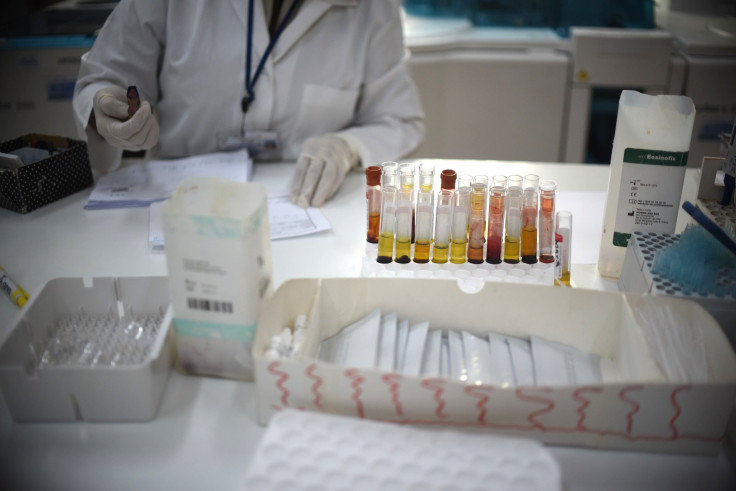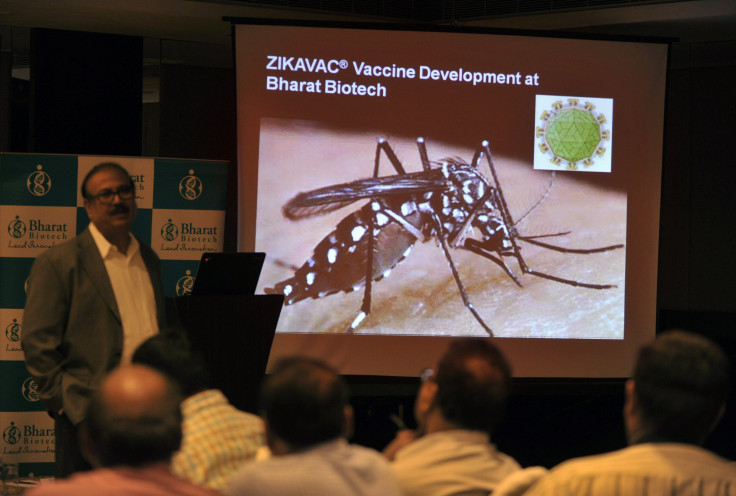Zika Outbreak Update: WHO Voices Concern Over Sexually Transmitted Case In Texas, Urges Americas To Spend More Against Virus

The World Health Organization (WHO) expressed concern Wednesday after reports of a sexually transmitted Zika virus case in Texas. The virus, spreading quickly across the Americas, is usually transmitted by mosquitoes, and is linked to brain deformities in babies.
The Centers for Disease Control and Prevention (CDC) reportedly said that a patient in Texas became infected with Zika after having sex with someone who had returned from Venezuela, in the first case of the illness being transmitted within the United States amid the current outbreak in Latin America. Amid concerns, WHO spokesman Gregory Hartl reportedly said that "almost a 100 percent of the cases" are transmitted by the bite of a mosquito.
"This reported case in the U.S. of course raises concerns," Hartl said at the U.N. agency's headquarters in Geneva, according to Reuters. "This needs to be further investigated to understand the conditions and how often or likely sexual transmission is."
However, he added that for the WHO "the most important thing to do is to control people's exposure to mosquitoes."
The CDC reportedly said Wednesday that it will provide more guidance as more information on Zika virus transmission through sex is learned, but in the meantime, "Sexual partners can protect each other by using condoms to prevent spreading sexually transmitted infections. People who have Zika virus infection can protect others by preventing additional mosquito bites."
The WHO estimates as many as 4 million people could become infected with the Zika virus in the Americas. It said at least 26 countries in the Americas have a Zika outbreak, with Brazil being the hardest-hit nation, reporting 3,530 cases. Countries such as Ireland, Australia and Canada have reported cases of travelers testing positive for the virus after visiting an infected area.
Brazil’s Health Ministry reportedly called for deeper investigation into studies on the transmission of Zika, following reports that the virus had been spread through sexual contact in Texas.
The Health Ministry said in a statement Wednesday that “until now, there is no proof of the transmission of Zika through sexual relations.”
Brazil’s President Dilma Rousseff said that the virus has gone from a “distant nightmare” to a “real threat” against the Brazilian people. She also said that the government is working on developing a vaccine for the virus.
Currently, there is no vaccine or treatment for Zika. However, on Wednesday reports surfaced that an Indian biotechnology firm claimed significant progress on two of its promising vaccines for Zika infection. Bharat Biotech, based in the southern Indian city of Hyderabad, has been working on the virus for a year and one of the vaccines has now reached the stage of pre-clinical testing in animals, the firm’s chief managing director Krishna Ella said, according to the Economic Times.

Meanwhile, United Airlines and Delta Air Lines have offered to allow crew to opt out of flights to Latin America and the Caribbean amid growing concerns over Zika, the companies told Reuters Wednesday.
© Copyright IBTimes 2025. All rights reserved.





















